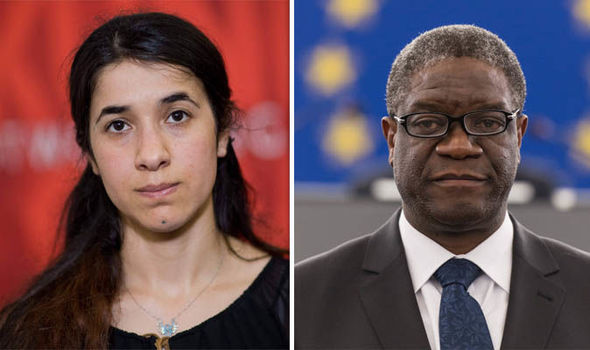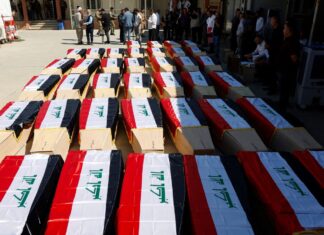By Rukmini Callimachi, Jeffrey Gettleman, Nicholas Kulish and Benjamin Mueller
OSLO, Norway (New York Times) — In the midst of a global reckoning over sexual violence, a woman who was forced into sexual slavery by the Islamic State and a Congolese gynecological surgeon were awarded the Nobel Peace Prize on Friday, October 5, for their campaigns to end the use of mass rape as a weapon of war.
The award went to Nadia Murad, 25, who became the voice and face of women who survived sexual violence by the Islamic State, and to Dr. Denis Mukwege, 63, who has treated thousands of women in a country once called the rape capital of the world.
They have worked through grave risks to their own lives to help survivors and to bring their stories to the world.
Berit Reiss-Andersen, the chairwoman of the Norwegian Nobel Committee, said, “We want to send out a message of awareness that women, who constitute half of the population in most communities, actually are used as a weapon of war, and that they need protection and that the perpetrators have to be prosecuted and held responsible for their actions.”
ADVERTISEMENT










